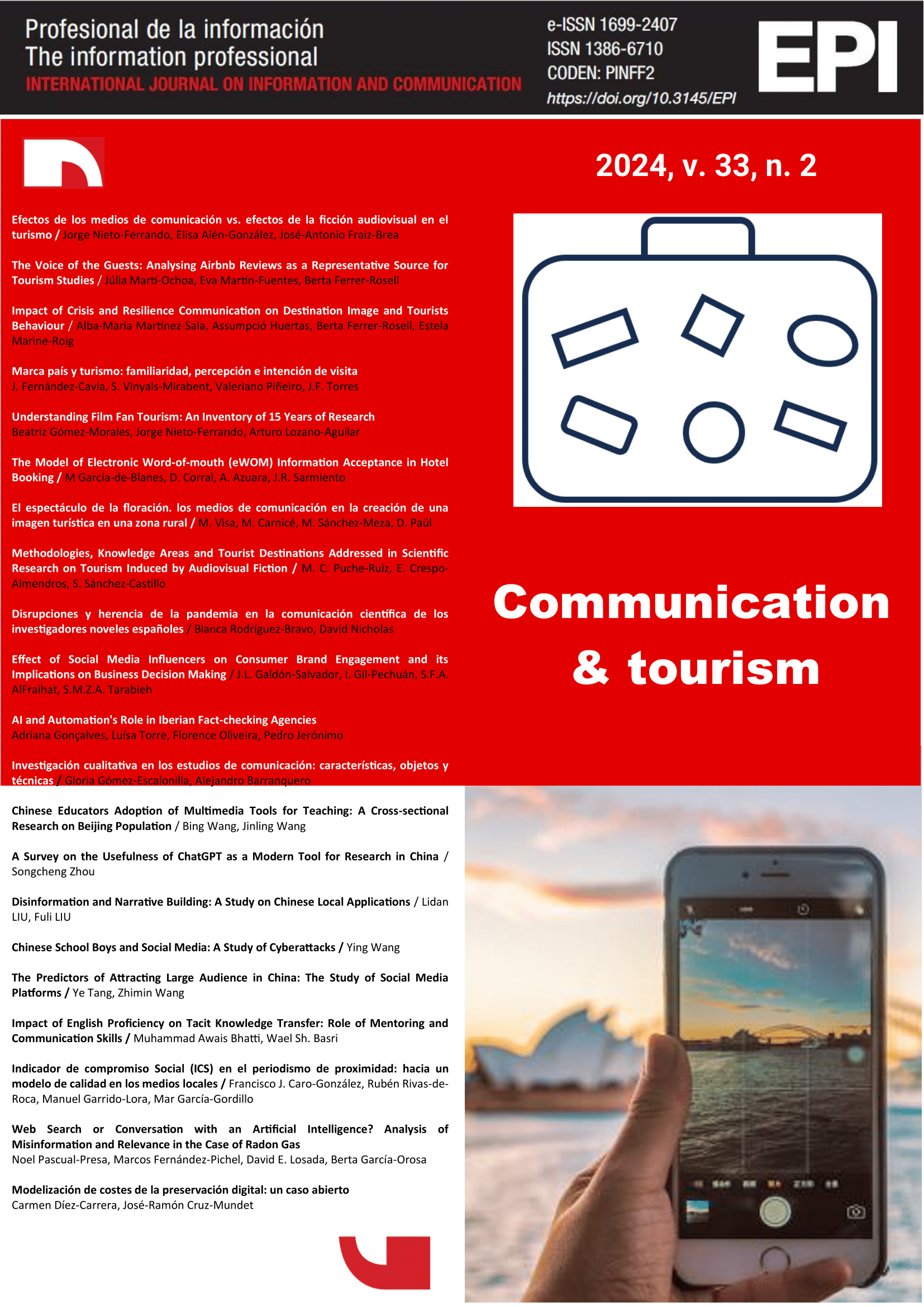Media Effects Vs. Audiovisual Fiction Effects on Tourism
DOI:
https://doi.org/10.3145/epi.2024.0201Keywords:
Audiovisual Fiction-Induced Tourism, Narrative Involvement, Agenda Setting, Cultivation Theory, Selective Exposure, Cultural Proximity, Destination PlacementAbstract
The relationship between mass media and tourism can be studied from a perspective that treats media products as
documents and as agents. This article offers a theoretical reflection on mass media, exploring certain concepts that could be
useful for research on the effects of audiovisual fiction on destination image, visiting motivations and intentions, and tourist
experiences. Specifically, it describes some of the theoretical contributions developed in the context of a research project
involving the qualitative and quantitative analysis of the tourism-inducing factors of audiovisual fiction, and of its effects on
audiences and potential tourists (Spanish Ministry of Science and Innovation Ref. PID2020-112668GB-I00).
Downloads
Downloads
Published
How to Cite
Issue
Section
License
Copyright (c) 2024 Profesional de la información

This work is licensed under a Creative Commons Attribution 4.0 International License.
Dissemination conditions of the articles once they are published
Authors can freely disseminate their articles on websites, social networks and repositories
However, the following conditions must be respected:
- Only the editorial version should be made public. Please do not publish preprints, postprints or proofs.
- Along with this copy, a specific mention of the publication in which the text has appeared must be included, also adding a clickable link to the URL: http://www.profesionaldelainformacion.com
- Only the final editorial version should be made public. Please do not publish preprints, postprints or proofs.
- Along with that copy, a specific mention of the publication in which the text has appeared must be included, also adding a clickable link to the URL: http://revista.profesionaldelainformacion.com
Profesional de la información journal offers the articles in open access with a Creative Commons BY license.




